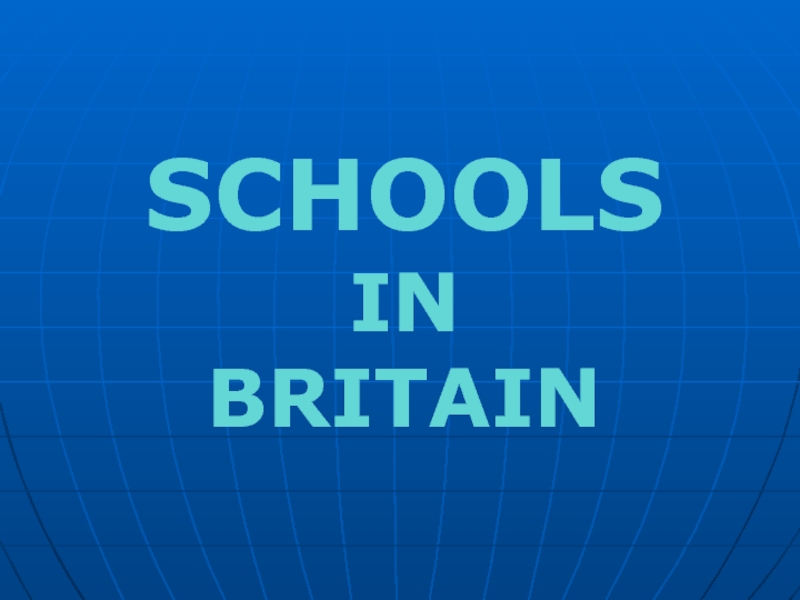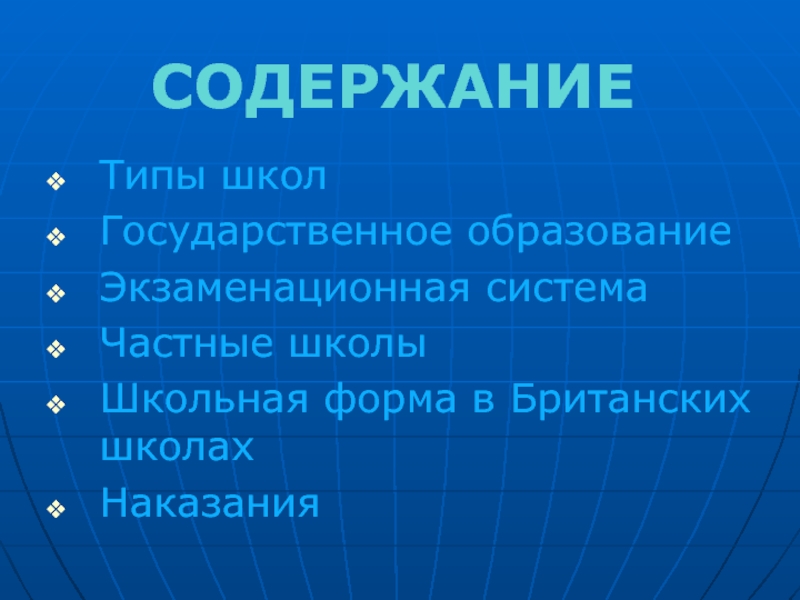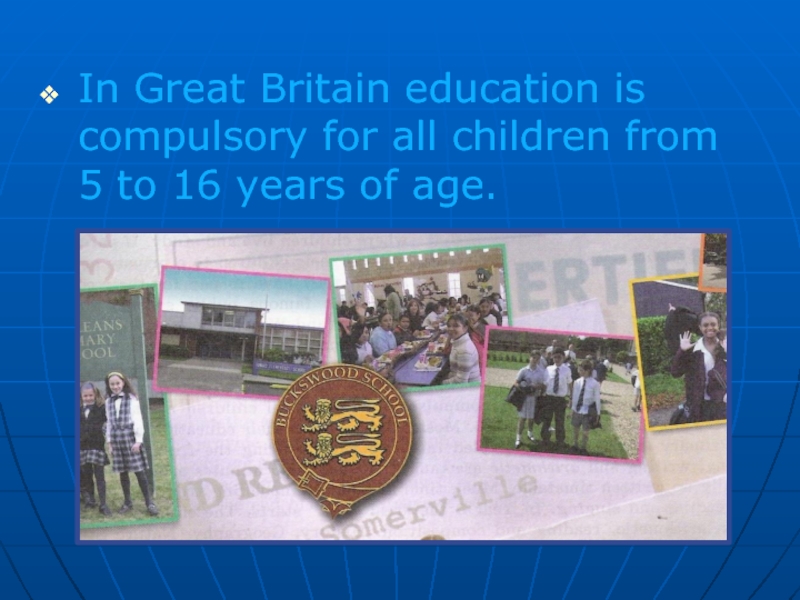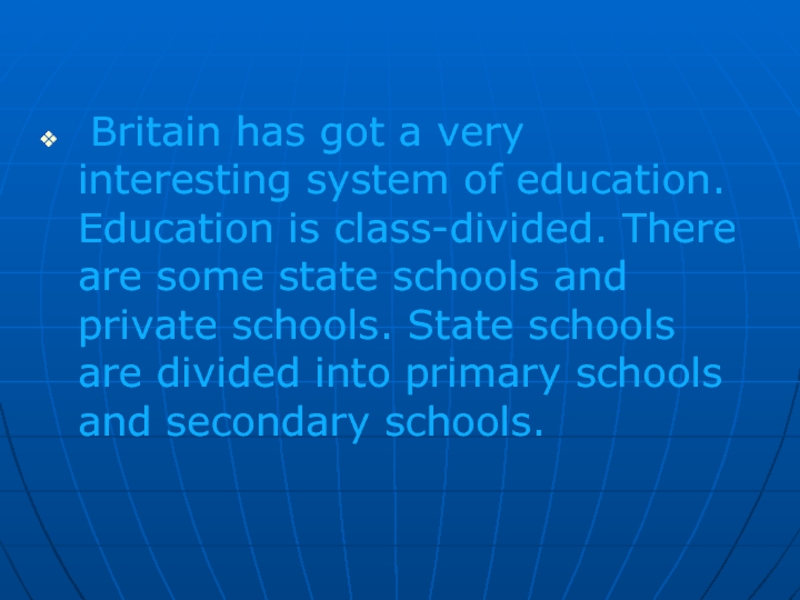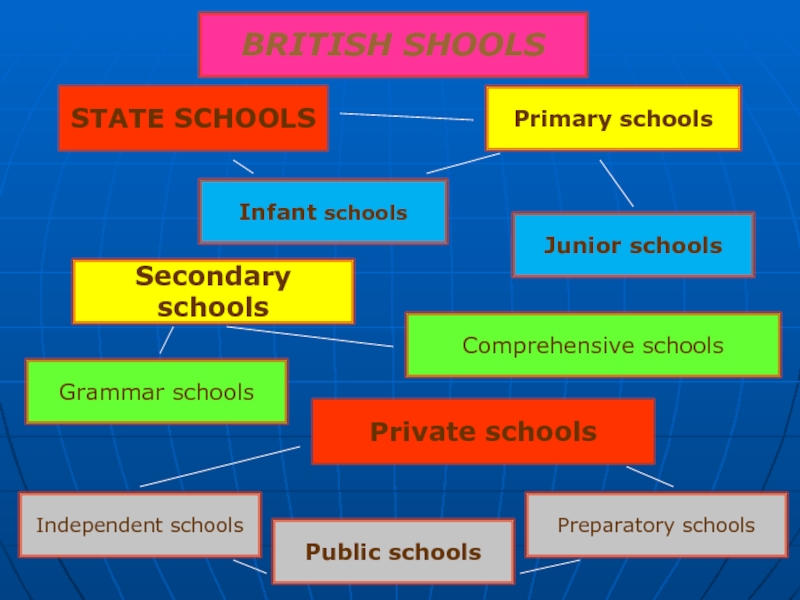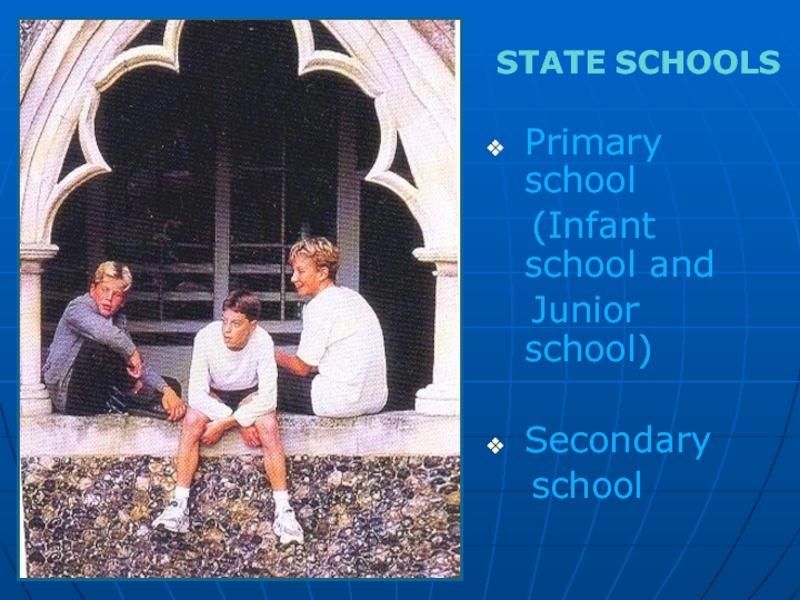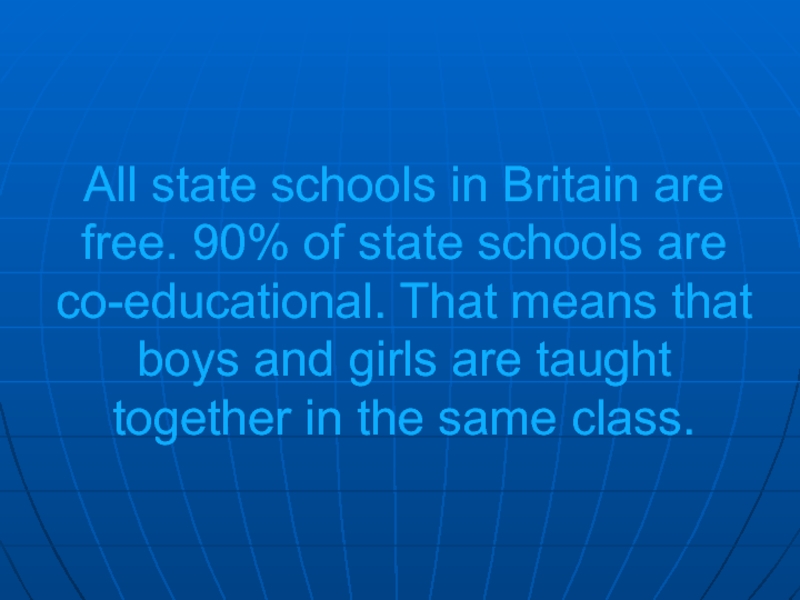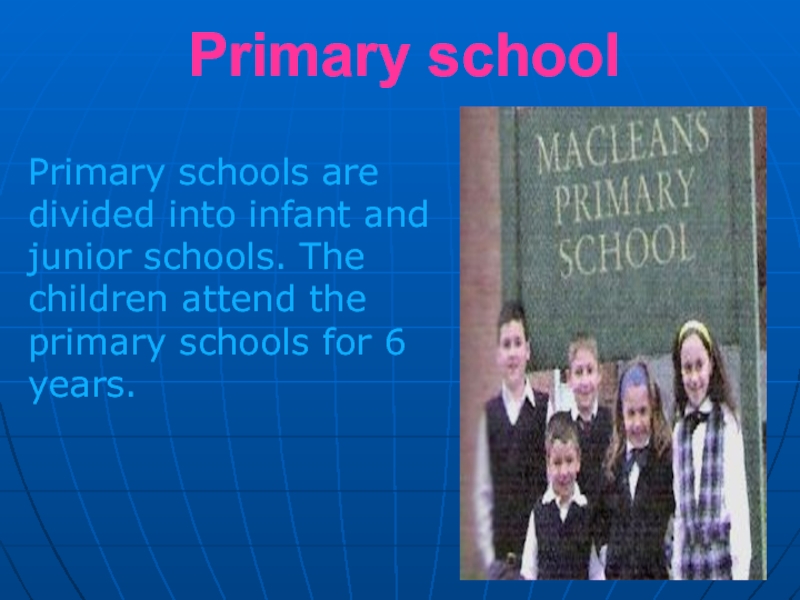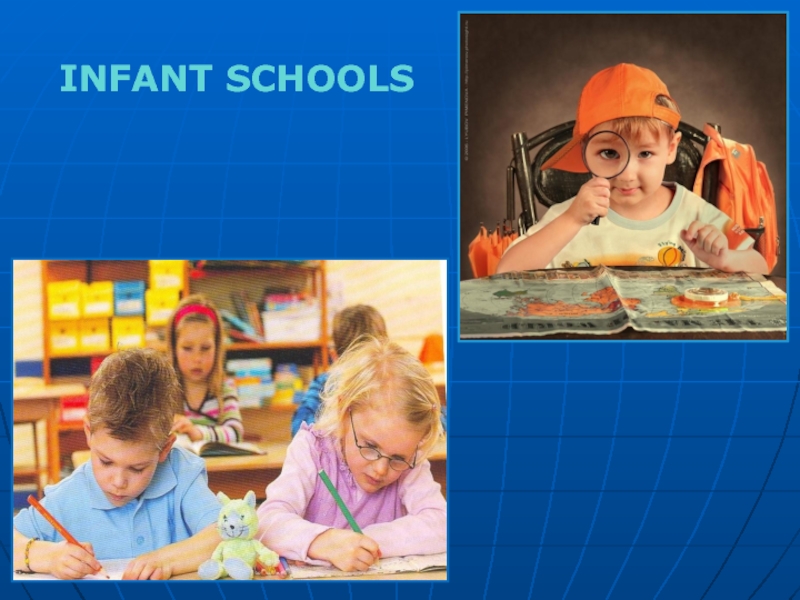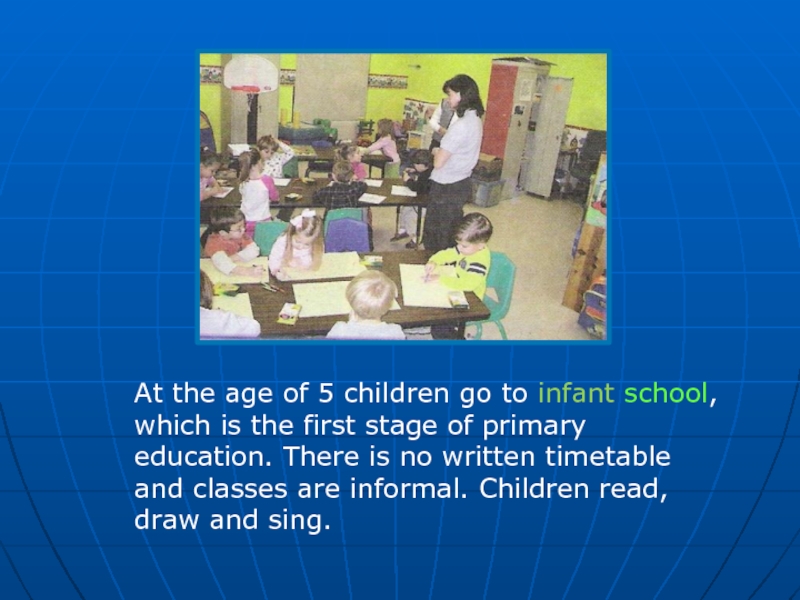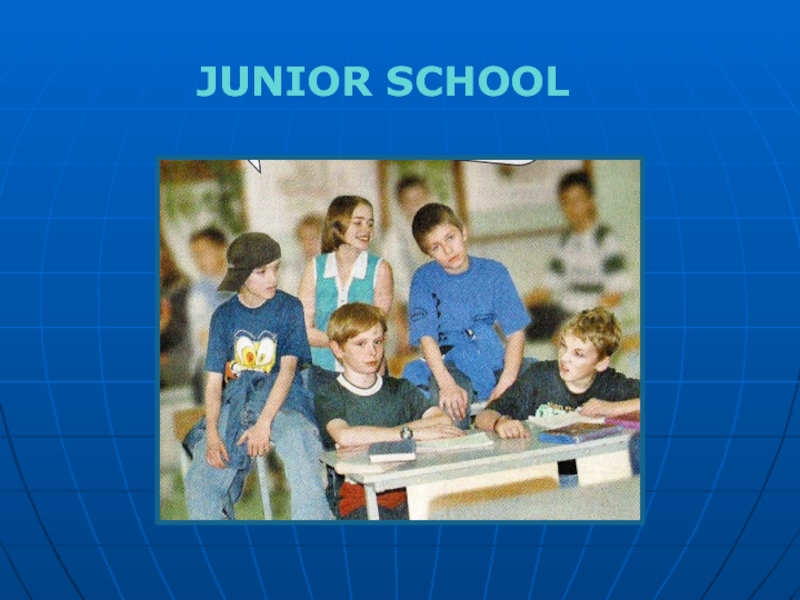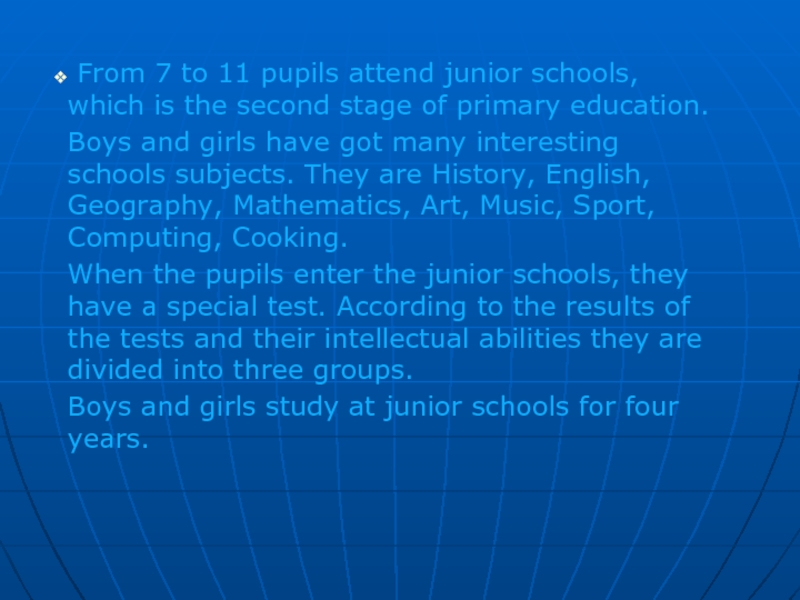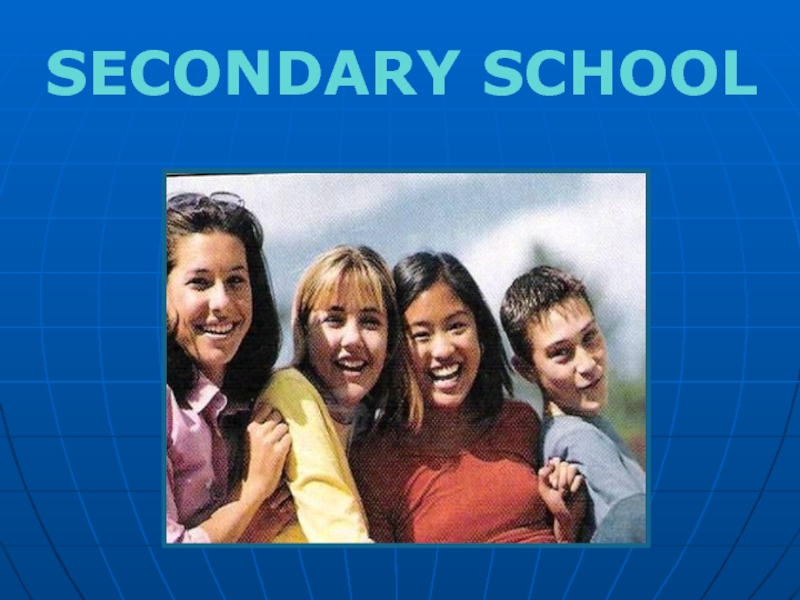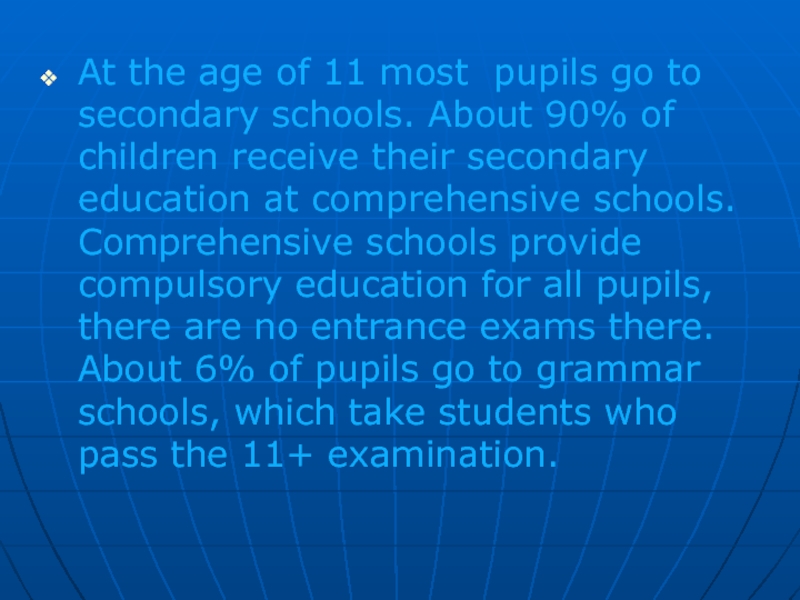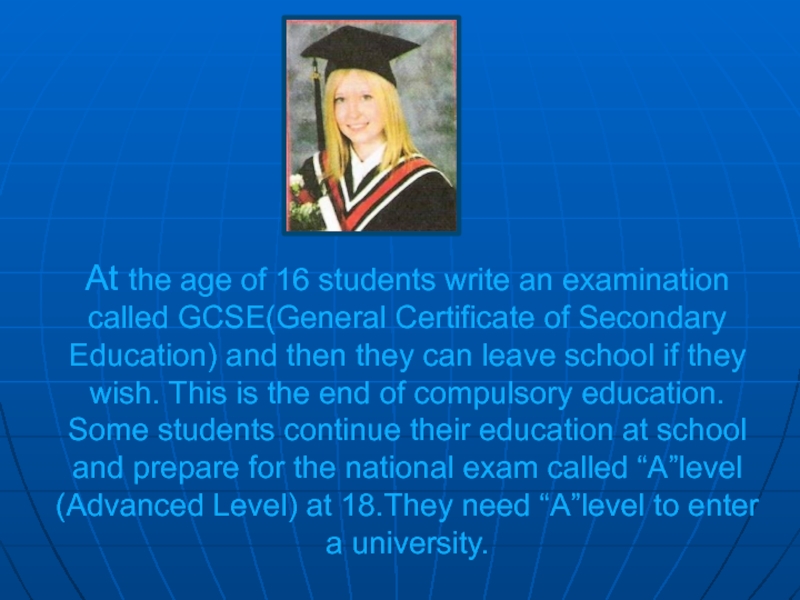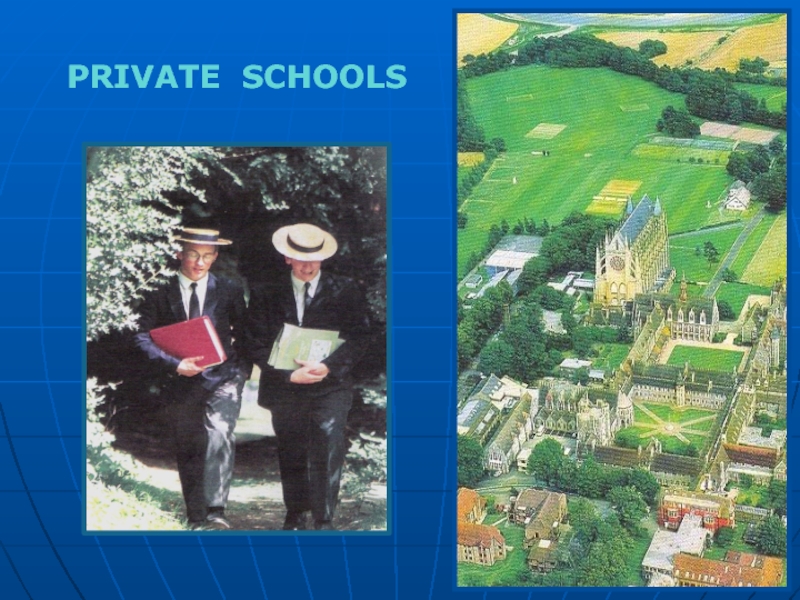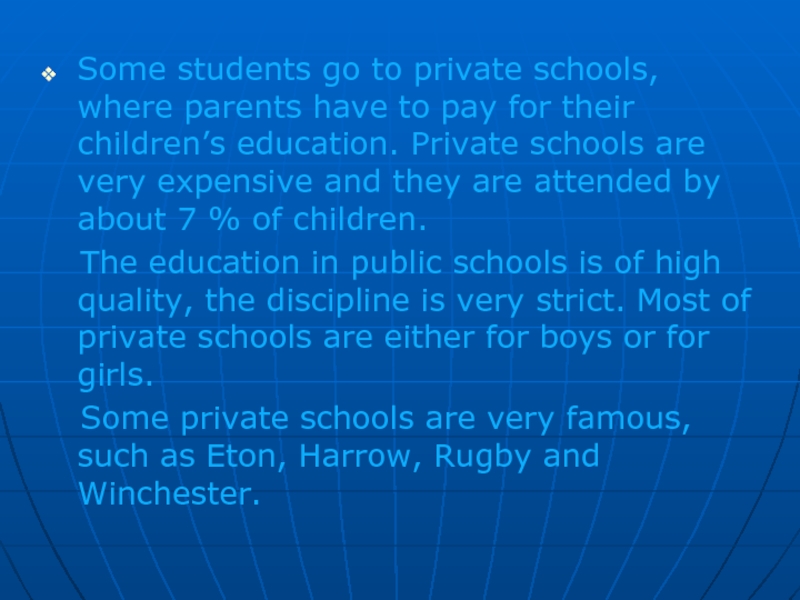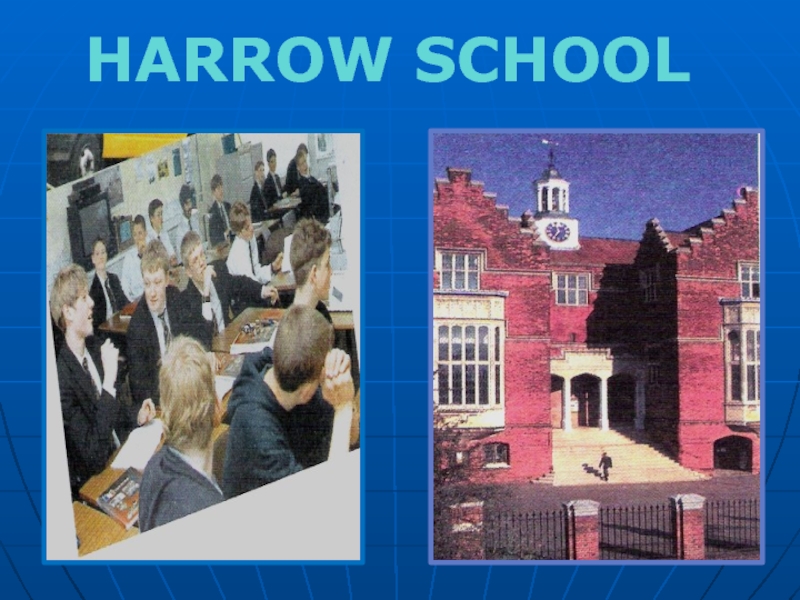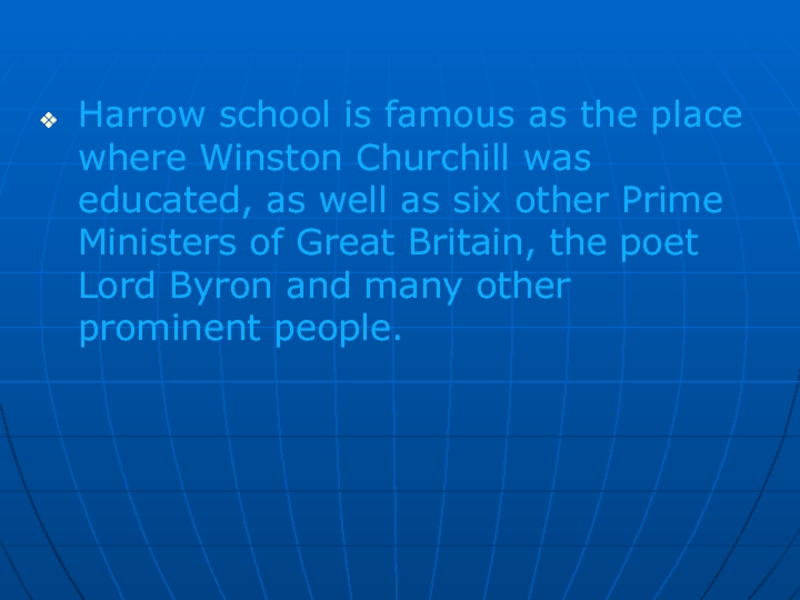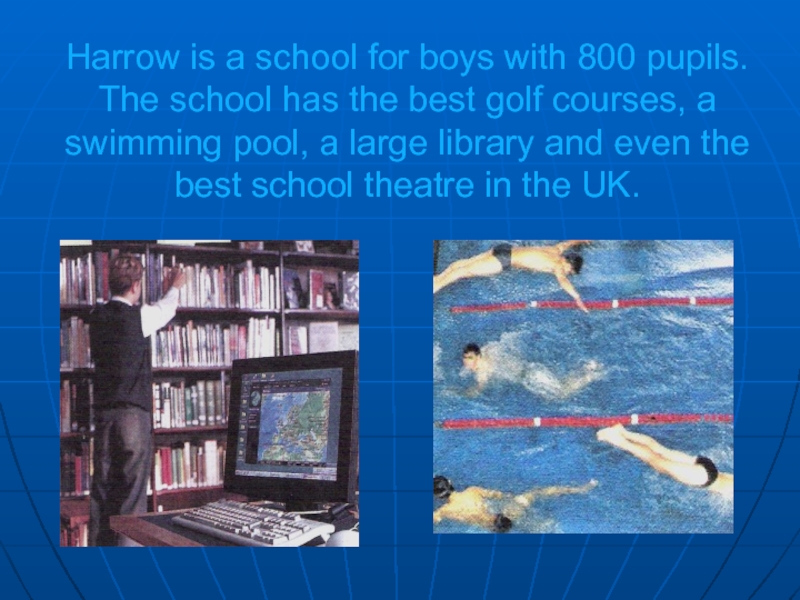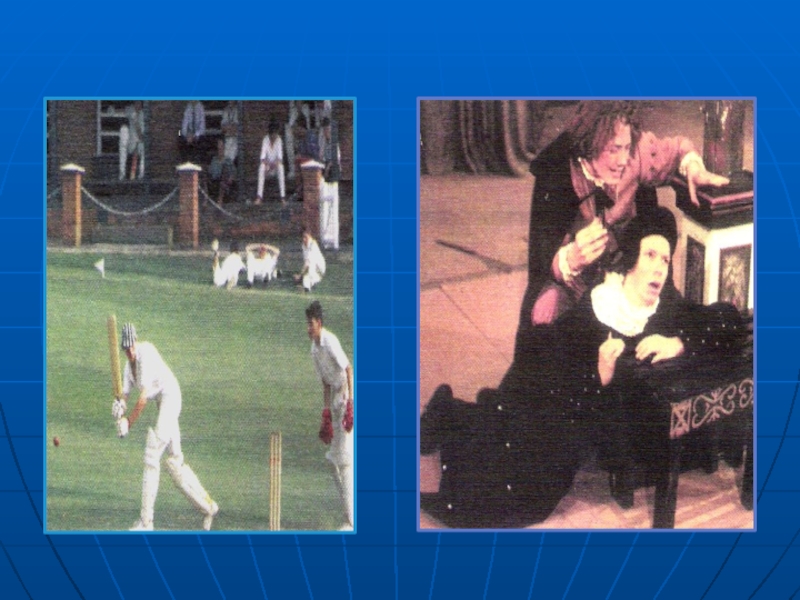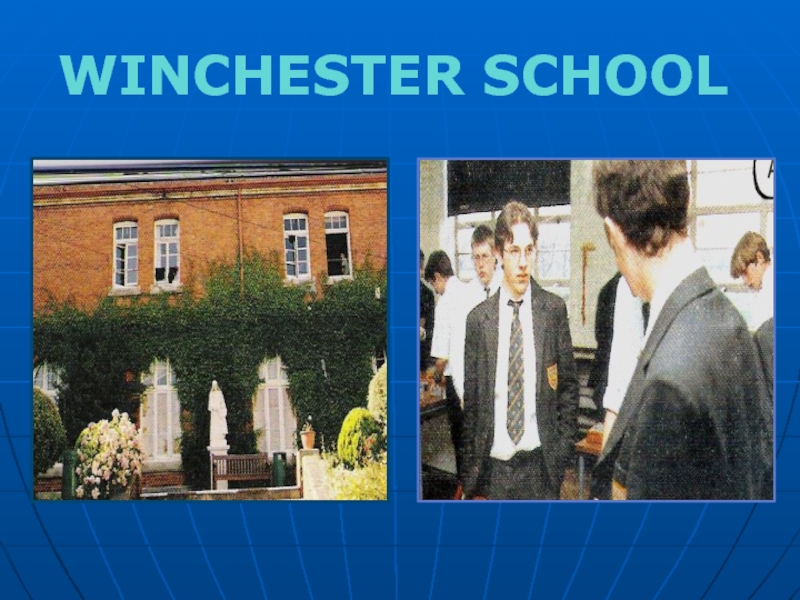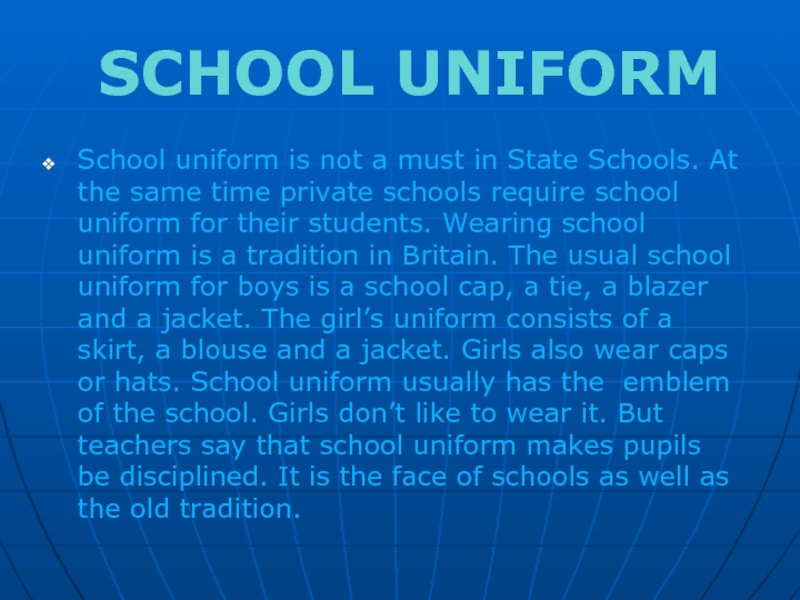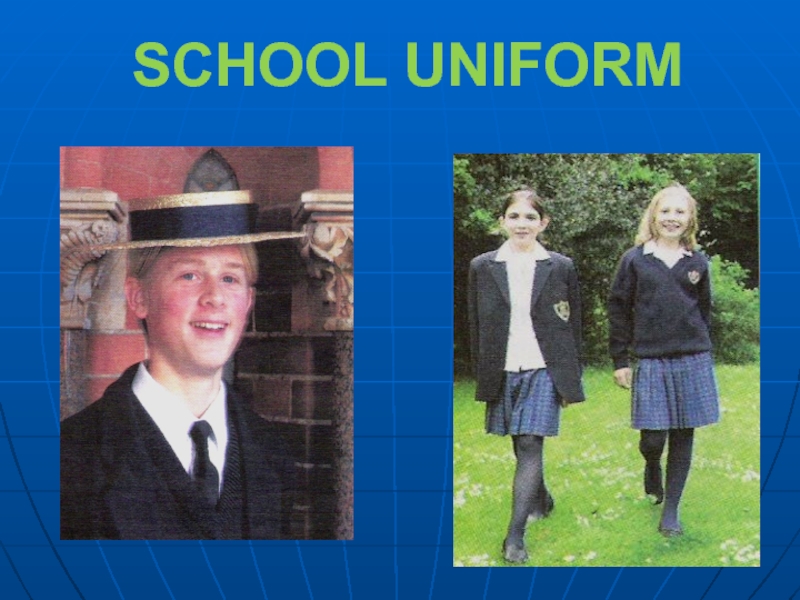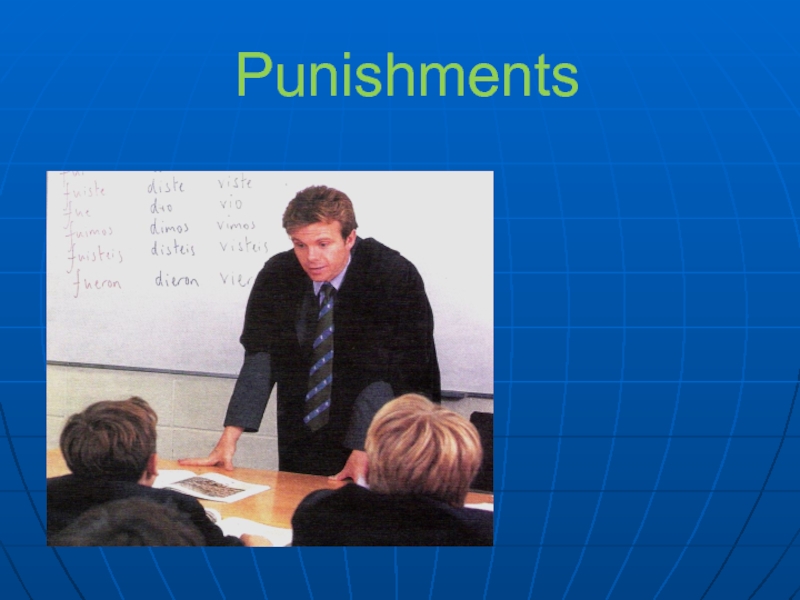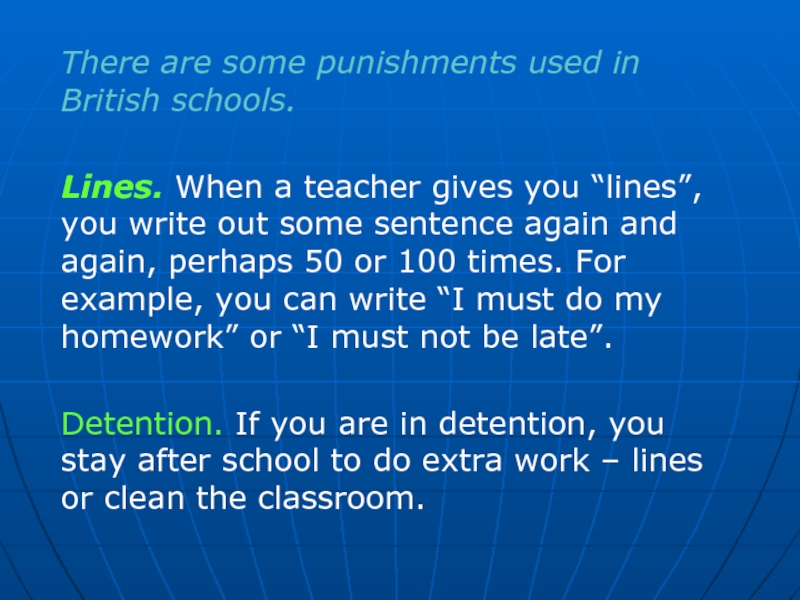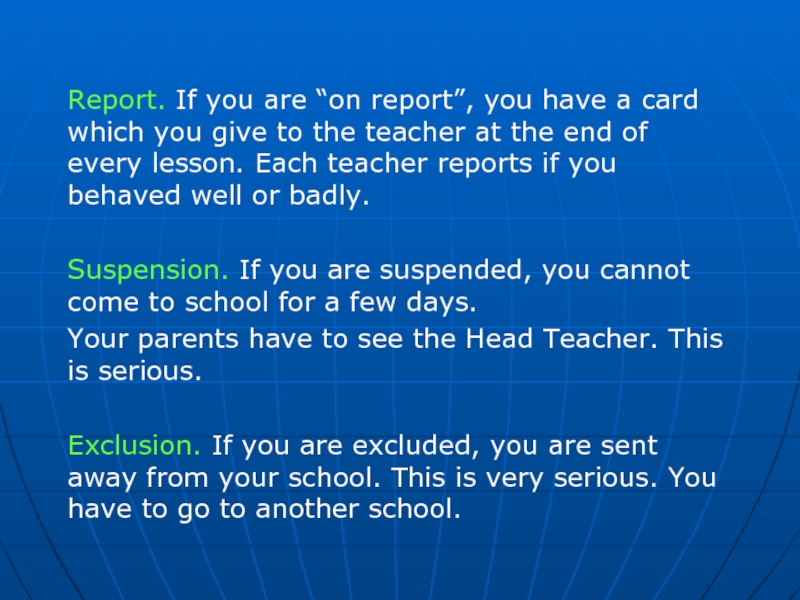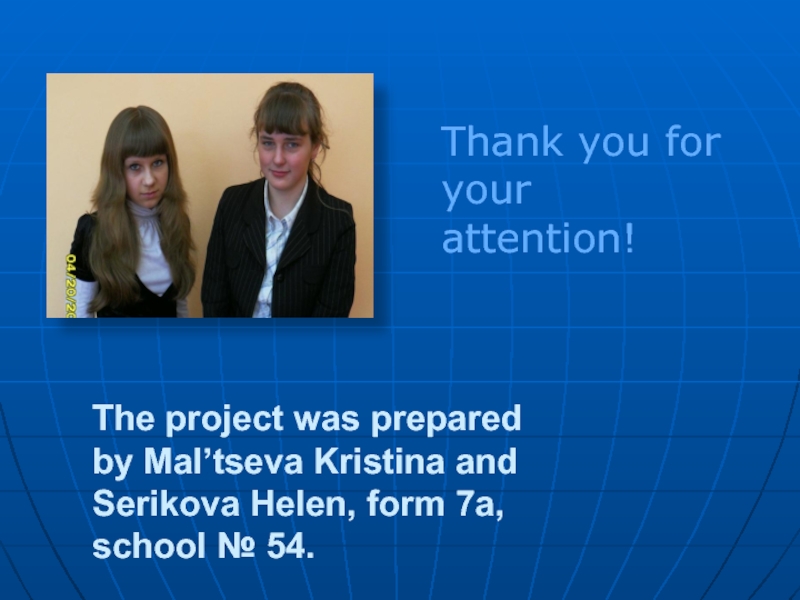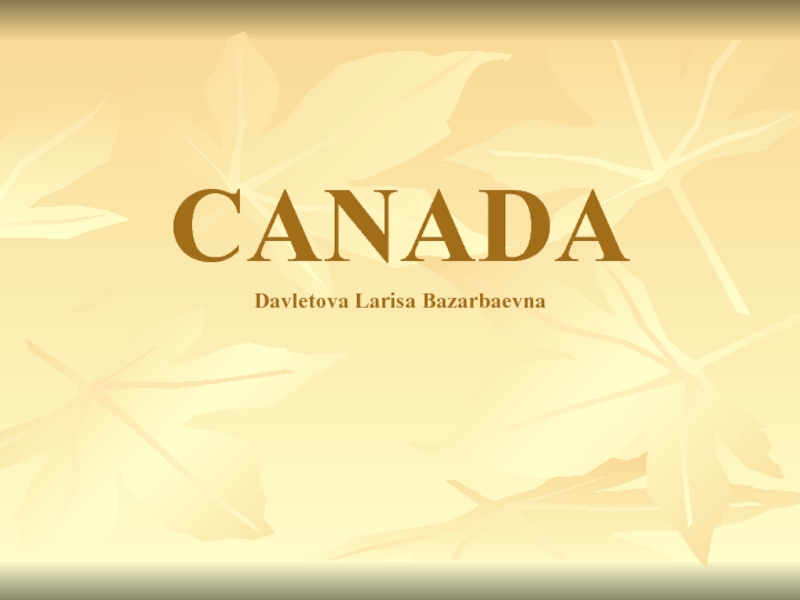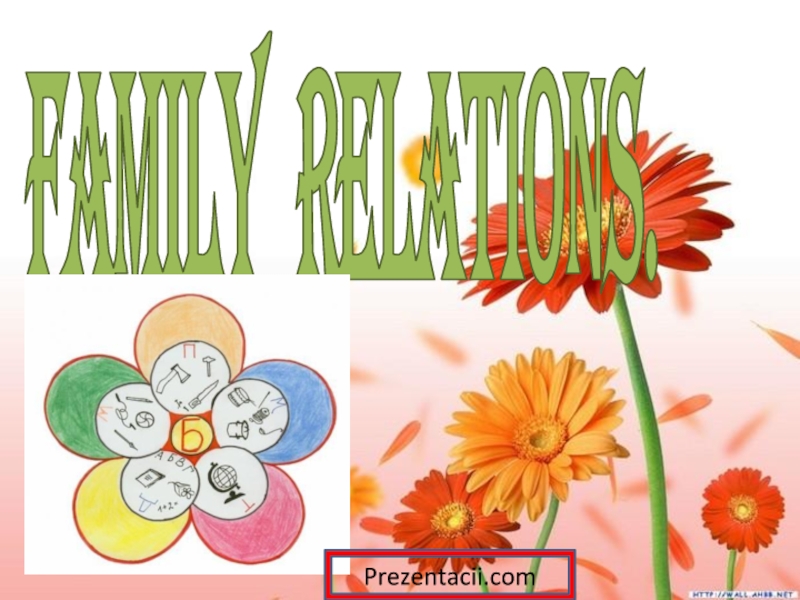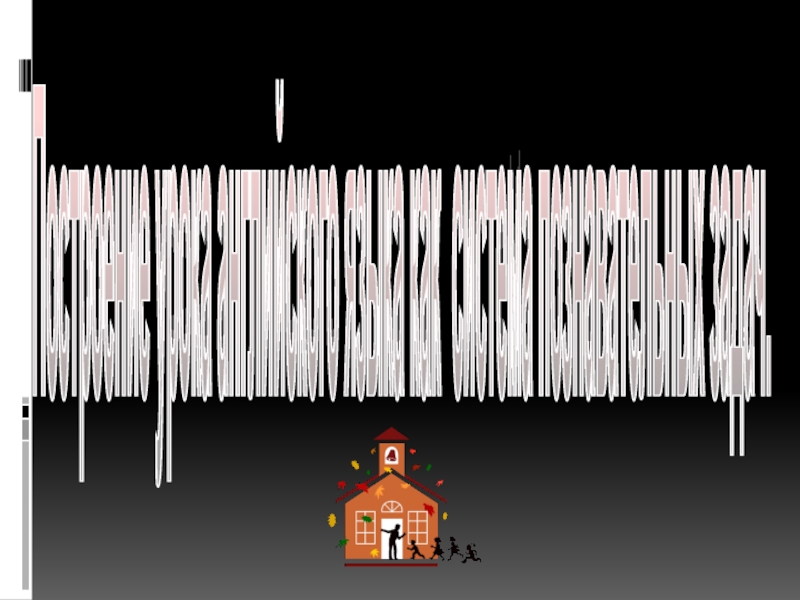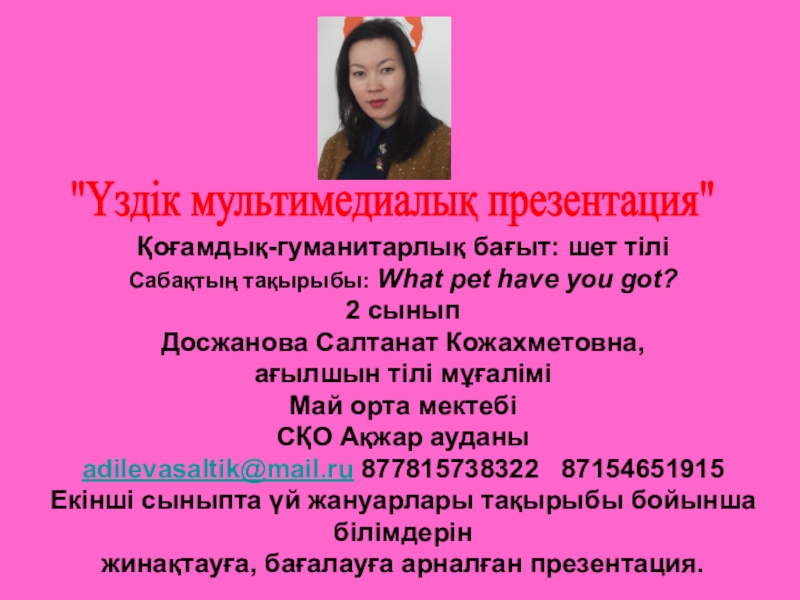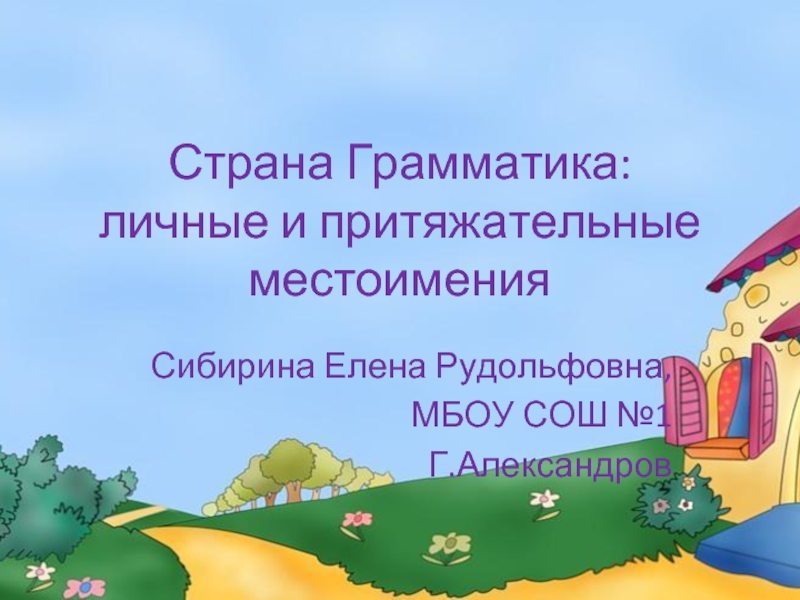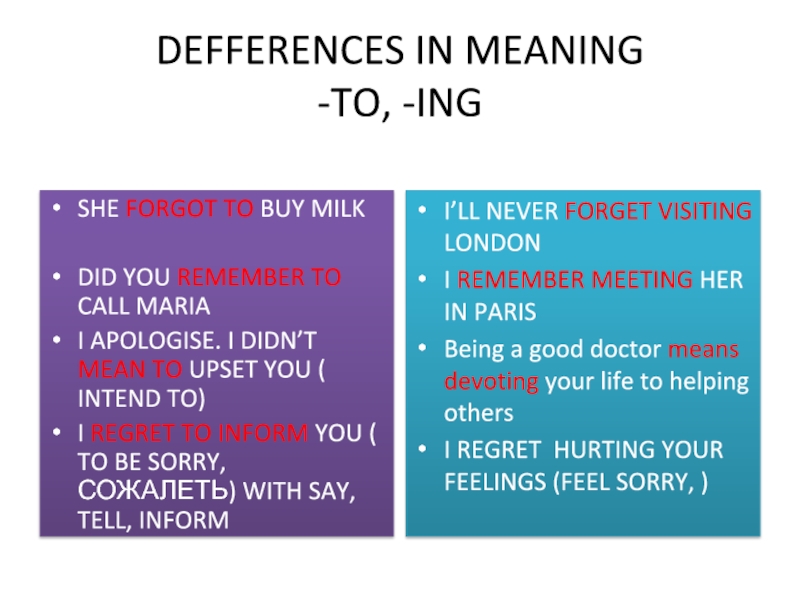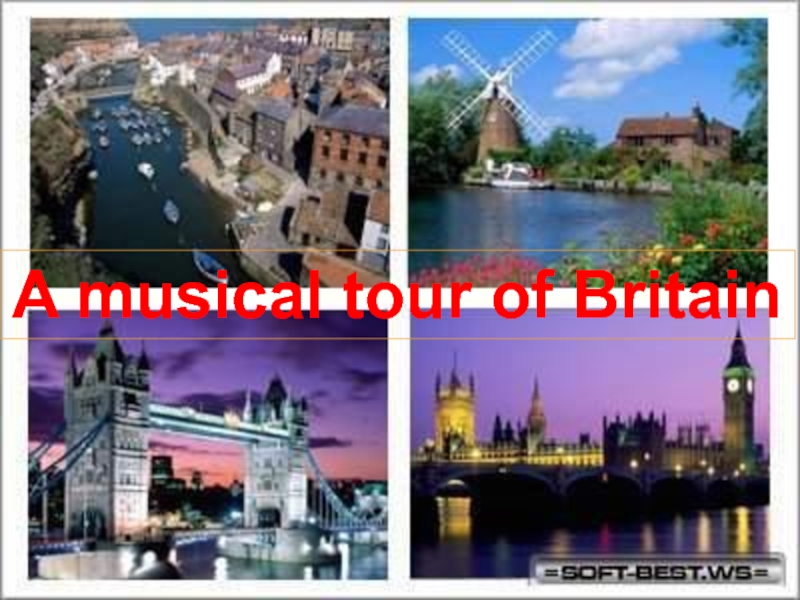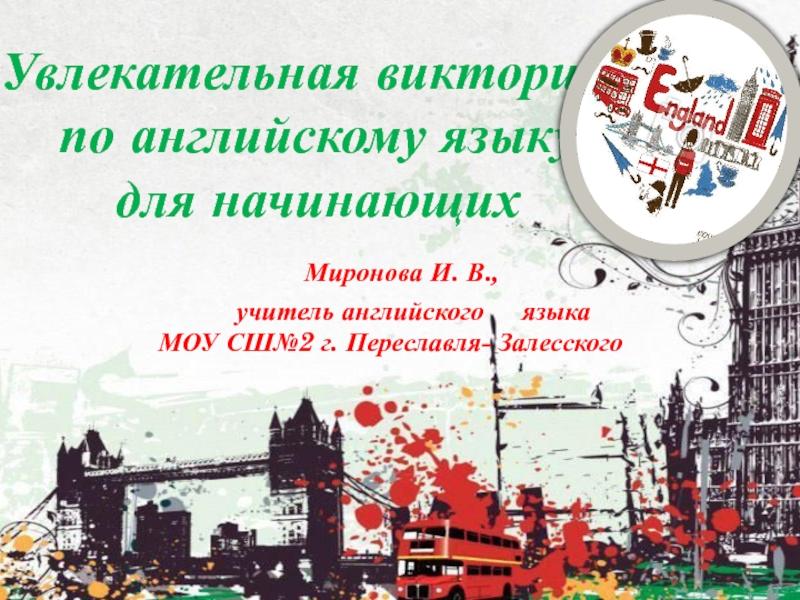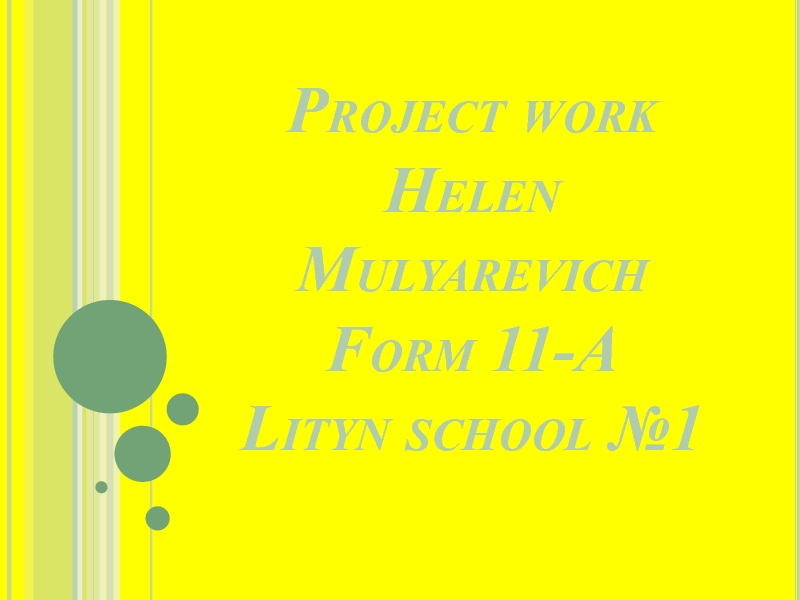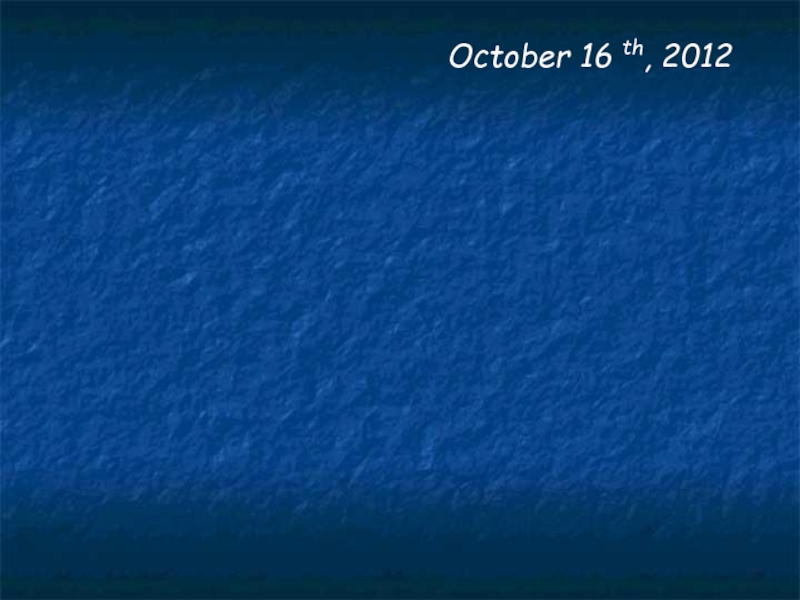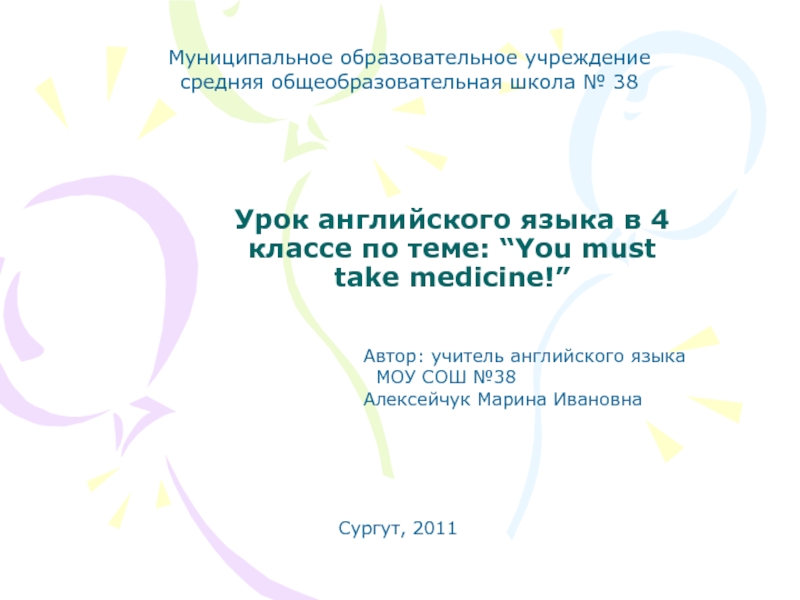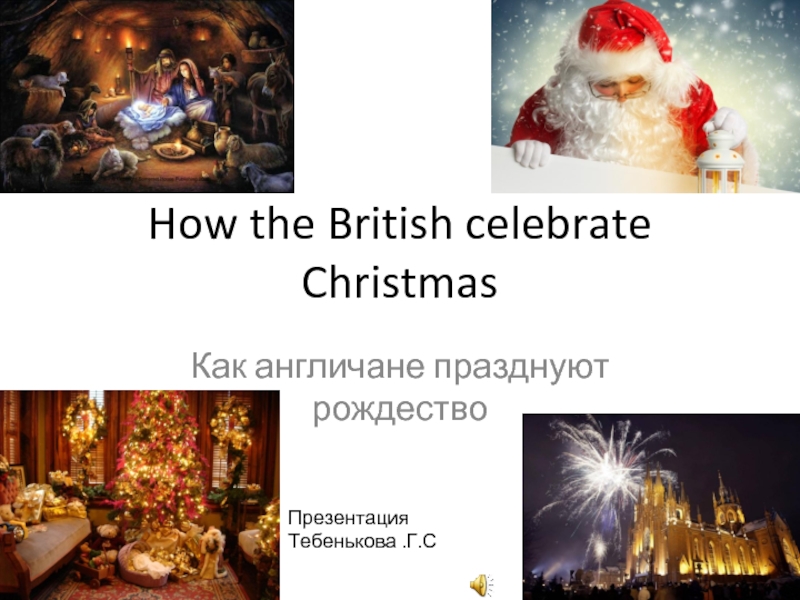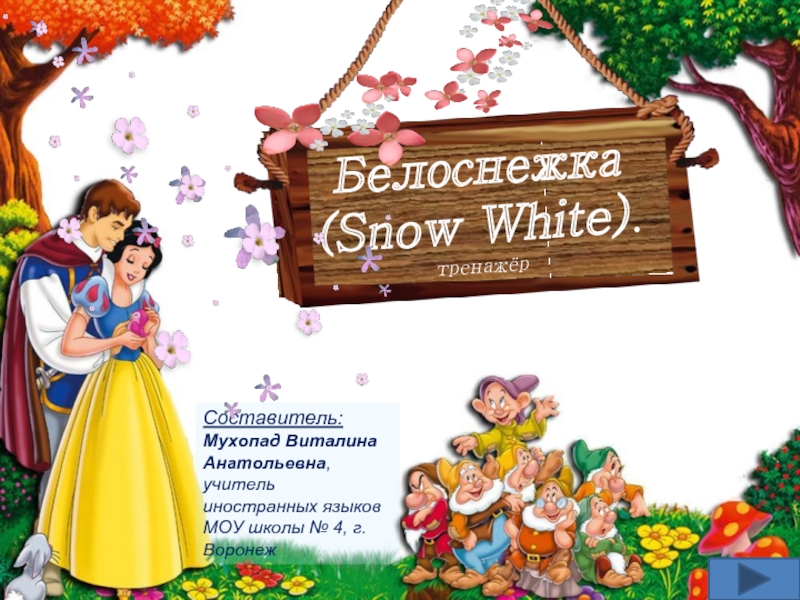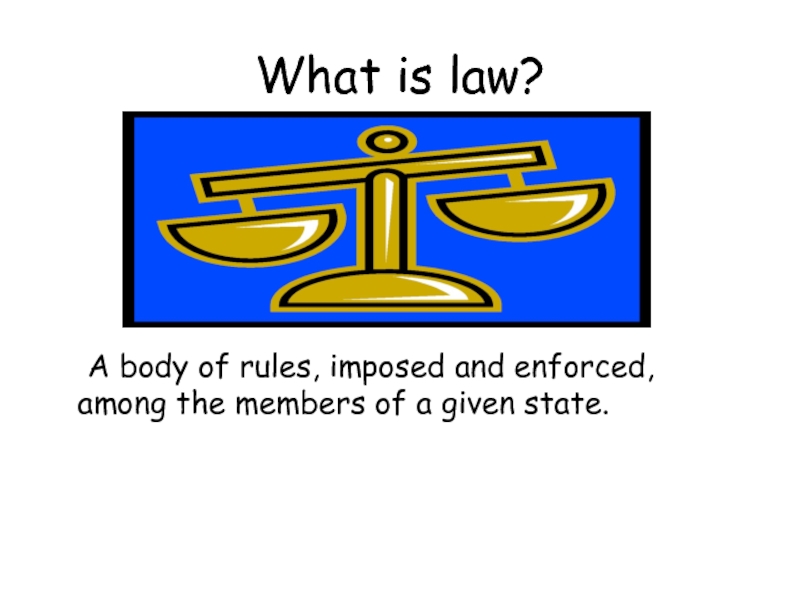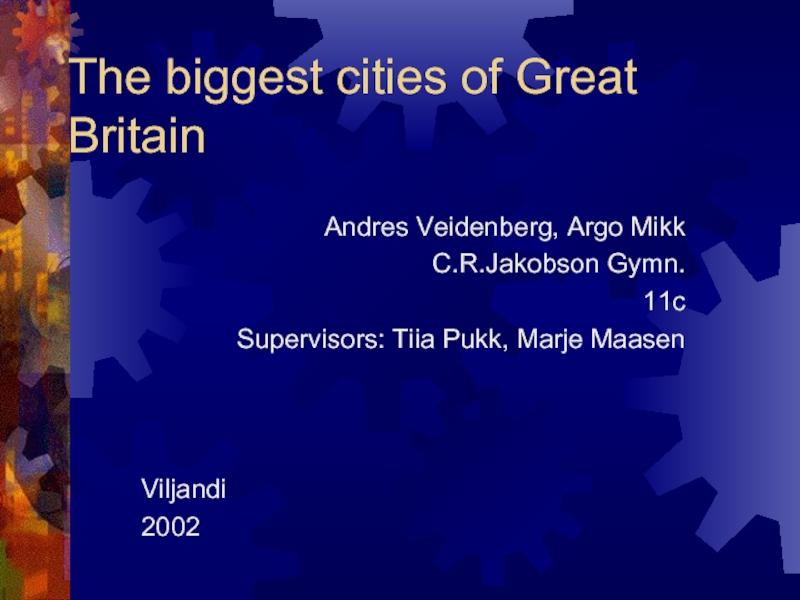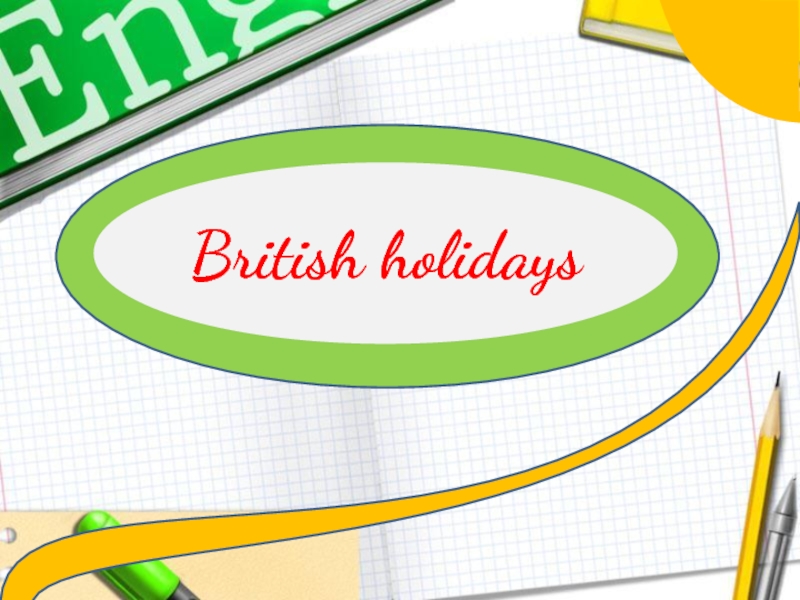Разделы презентаций
- Разное
- Английский язык
- Астрономия
- Алгебра
- Биология
- География
- Геометрия
- Детские презентации
- Информатика
- История
- Литература
- Математика
- Медицина
- Менеджмент
- Музыка
- МХК
- Немецкий язык
- ОБЖ
- Обществознание
- Окружающий мир
- Педагогика
- Русский язык
- Технология
- Физика
- Философия
- Химия
- Шаблоны, картинки для презентаций
- Экология
- Экономика
- Юриспруденция
Schools in Britain
Содержание
- 1. Schools in Britain
- 2. Типы школГосударственное образованиеЭкзаменационная системаЧастные школыШкольная форма в Британских школахНаказанияСОДЕРЖАНИЕ
- 3. In Great Britain education is compulsory for all children from 5 to 16 years of age.
- 4. Britain has got a very interesting
- 5. BRITISH SHOOLSSTATE SCHOOLSPrimary schoolsJunior schoolsInfant schoolsSecondary schoolsGrammar schoolsComprehensive schoolsPrivate schoolsIndependent schoolsPreparatory schoolsPublic schools
- 6. Primary school (Infant school and Junior school)Secondary schoolState schools
- 7. All state schools in Britain are free.
- 8. Primary schoolPrimary schools are divided into infant
- 9. Infant schools
- 10. At the age of 5 children go
- 11. Junior school
- 12. From 7 to 11 pupils attend
- 13. Secondary school
- 14. At the age of 11 most pupils
- 15. At the age of 16 students
- 16. Private schools
- 17. Some students go to private schools, where
- 18. Harrow school
- 19. Harrow school is famous as the place
- 20. Harrow is a school for boys with
- 21. Слайд 21
- 22. Winchester School
- 23. School uniform is not a must in
- 24. SCHOOL UNIFORM
- 25. Punishments
- 26. There are some punishments used in British
- 27. Report. If you are “on report”, you
- 28. The project was prepared by Mal’tseva Kristina
- 29. Скачать презентанцию
Типы школГосударственное образованиеЭкзаменационная системаЧастные школыШкольная форма в Британских школахНаказанияСОДЕРЖАНИЕ
Слайды и текст этой презентации
Слайд 2Типы школ
Государственное образование
Экзаменационная система
Частные школы
Школьная форма в Британских школах
Наказания
СОДЕРЖАНИЕ
Слайд 4
Britain has got a very interesting system of education.
Education is class-divided. There are some state schools and private
schools. State schools are divided into primary schools and secondary schools.Слайд 5BRITISH SHOOLS
STATE SCHOOLS
Primary schools
Junior schools
Infant schools
Secondary schools
Grammar schools
Comprehensive schools
Private schools
Independent
schools
Preparatory schools
Public schools
Слайд 7All state schools in Britain are free. 90% of state
schools are co-educational. That means that boys and girls are
taught together in the same class.Слайд 8Primary school
Primary schools are divided into infant and junior schools.
The children attend the primary schools for 6 years.
Слайд 10At the age of 5 children go to infant school,
which is the first stage of primary education. There is
no written timetable and classes are informal. Children read, draw and sing.Слайд 12 From 7 to 11 pupils attend junior schools, which
is the second stage of primary education.
Boys and girls have
got many interesting schools subjects. They are History, English, Geography, Mathematics, Art, Music, Sport, Computing, Cooking.When the pupils enter the junior schools, they have a special test. According to the results of the tests and their intellectual abilities they are divided into three groups.
Boys and girls study at junior schools for four years.
Слайд 14At the age of 11 most pupils go to secondary
schools. About 90% of children receive their secondary education at
comprehensive schools. Comprehensive schools provide compulsory education for all pupils, there are no entrance exams there. About 6% of pupils go to grammar schools, which take students who pass the 11+ examination.Слайд 15 At the age of 16 students write an examination called
GCSE(General Certificate of Secondary Education) and then they can leave
school if they wish. This is the end of compulsory education. Some students continue their education at school and prepare for the national exam called “A”level (Advanced Level) at 18.They need “A”level to enter a university.Слайд 17Some students go to private schools, where parents have to
pay for their children’s education. Private schools are very expensive
and they are attended by about 7 % of children.The education in public schools is of high quality, the discipline is very strict. Most of private schools are either for boys or for girls.
Some private schools are very famous, such as Eton, Harrow, Rugby and Winchester.
Слайд 19
Harrow school is famous as the place where Winston Churchill
was educated, as well as six other Prime Ministers of
Great Britain, the poet Lord Byron and many other prominent people.Слайд 20Harrow is a school for boys with 800 pupils. The
school has the best golf courses, a swimming pool, a
large library and even the best school theatre in the UK.Слайд 23School uniform is not a must in State Schools. At
the same time private schools require school uniform for their
students. Wearing school uniform is a tradition in Britain. The usual school uniform for boys is a school cap, a tie, a blazer and a jacket. The girl’s uniform consists of a skirt, a blouse and a jacket. Girls also wear caps or hats. School uniform usually has the emblem of the school. Girls don’t like to wear it. But teachers say that school uniform makes pupils be disciplined. It is the face of schools as well as the old tradition.SCHOOL UNIFORM
Слайд 26There are some punishments used in British schools.
Lines. When a
teacher gives you “lines”, you write out some sentence again
and again, perhaps 50 or 100 times. For example, you can write “I must do my homework” or “I must not be late”.Detention. If you are in detention, you stay after school to do extra work – lines or clean the classroom.
Слайд 27Report. If you are “on report”, you have a card
which you give to the teacher at the end of
every lesson. Each teacher reports if you behaved well or badly.Suspension. If you are suspended, you cannot come to school for a few days.
Your parents have to see the Head Teacher. This is serious.
Exclusion. If you are excluded, you are sent away from your school. This is very serious. You have to go to another school.
